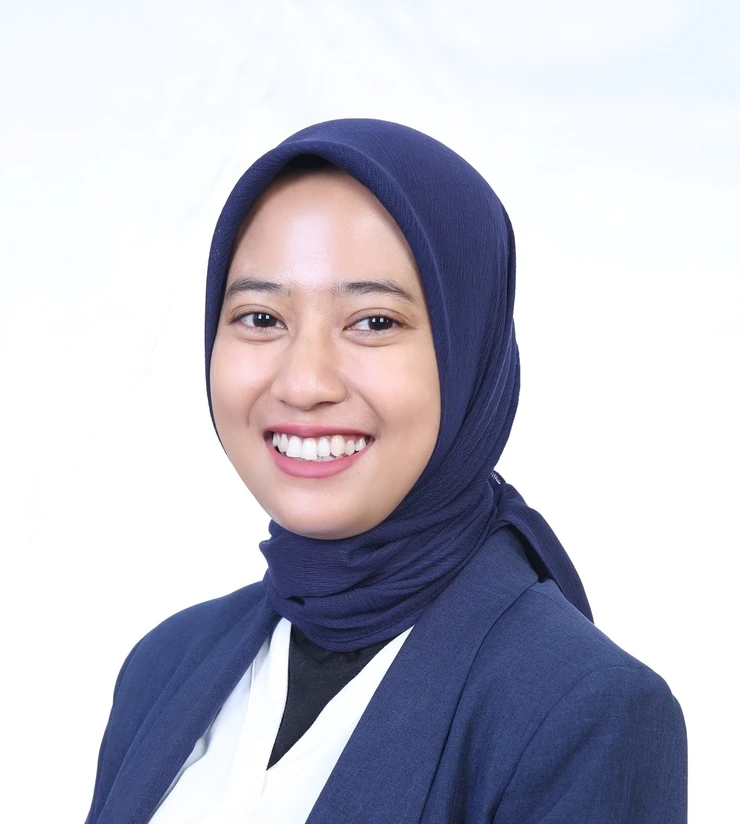UMi: Indonesian Ultra Micro Funding Program that Addresses Gender Finance Inequalities

Micro, Small and Medium Enterprises (MSMEs) play a vital role in driving economic growth and stability in numerous countries, and Indonesia is no exception. As of 2021, not do only MSMEs contributed 60.5% to Indonesia's Gross Domestic Product (GDP), but also 97% of Indonesian employment was covered under this sector (Ministry of Cooperatives and SMEs, 2022a). These numbers are undoubtedly impressive, but when we delve deeper into the composition of MSMEs in Indonesia, we come to the reality that the sector is far from perfect.
Back in 2019, micro-sized businesses dominated the MSMEs sector, accounting for a huge 99% of MSMEs, and women making up the majority of the labor (Ministry of Cooperatives and SMEs, 2022a). This category has the lowest longevity as they often lack management skills and are comprised of individuals who are considered unbankable (Sitaniapessy et al., 2022). Unbankable means that these individuals or businesses are considered too risky to qualify for banking services such as loans, due to limited credit history or insufficient collateral. Consequently, many micro-scale businesses end up relying on informal loans.
Another challenge for micro businesses is the informality status that often is attached to them. It means that the people working in this sector have less access to health insurance, income stability or job security. Consequently, despite employing a significant portion of the Indonesian population, the living conditions of those working in the MSMEs are often far from adequate.
How to make the current MSMEs situation better?
In the vibrant landscape of local Indonesian businesses, access to funding emerges as a major challenge, as highlighted by the International Labour Organization or ILO (2019). In order to access formal loans, it often requires collateral, which again discriminates against gender since women rarely have access to collateral or another financial assets in their households (Tambunan, 2017).
In response to this issue, the Indonesian government has mandated the Government Investment Unit of Indonesia (Pusat Investasi Pemerintah or PIP) to address these financial barriers by distributing a new financial funding program called Ultra Microcredit (UMi). Unlike the previous microfinance programs, UMi has a different approach to its borrowers. UMi focuses only and specifically on micro-enterprises. It targets those unbankable entrepreneurs by providing business loans up to IDR 10 million (approx. EUR 600) with 2% - 4% interest including mentoring facilitation.
Perhaps, the most remarkable advantage of UMi is its commitment to dismantling the collateral barrier that has long kept many entrepreneurs, particularly women from accessing capital. It eliminates the requirement for collateral, making UMi as a more viable option for entrepreneurs who lacked such assets. Moreover, the screening procedure is simplified, enabling borrowers to receive financial assistance more quickly (Adam et al., 2021).
In distributing UMi’s funds, it has to involve local communities and organizations. These groups are in charge of providing essential coaching in various aspects of business management, digital literacy, financial literacy, health, and education. This coaching is further bolstered by support from partnered financial institutions.
By providing these resources, the program aims to help borrowers learn how to run a business effectively, empowering women entrepreneurs to develop their skills through this platform. Furthermore, UMi assists borrowers in managing the loans they receive, ensuring the funds are appropriately utilized for business purposes rather than personal expenses.
How is the micro-finance program going?
UMi, despite being relatively young, has shown remarkable growth and success. By the end of 2021, the program had already partnered with over 50 financial institutions and organizations, showcasing its appeal and credibility among stakeholders. Within just two short years since its implementation, UMi has provided financial support to an impressive number of entrepreneurs, reaching over 7.5 million individuals.
For women entrepreneurs, UMi is a game-changer as it recognizes the unique hurdles they face. Impressively, the program’s recipients are 99% female. (Pusat Investasi Pemerintah, 2022). This achievement show’s their commitment to empower women and to strengthen the position of women in the economy. However, it also has a positive ripple effect of empowerment throughout the nation.
The success story of UMi does not stop there, the program has also proven instrumental in boosting the growth of retail businesses. Over 7 million retail enterprises in more than 500 towns and rural areas across the nation have benefited from the program's funding and support (Pusat Investasi Pemerintah, 2022). This has not only bolstered the overall economic landscape but has also created new opportunities for job creation and income generation in previously underserved communities.
It can be observed that the success of the UMi program in improving financial inclusion is considerable. The program has addressed inequality in accessing formal financial services, paved the way for the women with innovative ideas and promised micro-scale businesses to participate actively in the economy.
Is there any room to improve?
Despite its massive success, there are still areas where the UMi program can grow, particularly in terms of its coverage in different regions. At present, UMi program predominantly covers 70% of Java area. Similarly, the MSMEs Integrated Service Centre, which is run by the Ministry of Cooperatives and MSMEs, is also mostly provided in Java (Ministry of Cooperatives and SMEs, 2022b; Pusat Investasi Pemerintah, 2022). This indicates that micro-scale businesses' access to support and opportunities to growth is still centered in limited regions, leaving out micro businesses in other parts of the country.
On the other hand, the demand for micro-funding has not reached its full potential, especially among female entrepreneurs, who are hesitant to expand their businesses or scale up their market (Rothenberg et al., 2016). Women in business still bear the burden of managing domestic and caregiving responsibilities while striving to make their business thrive. This juggling act between being a housewife and a businesswoman can be overwhelming, compounded by societal stigmas that discourage women from prioritizing their businesses (Brush et al., 2009; Tambunan, 2017). These challenges significantly impede women's ability to expand their businesses (Hani et al., 2012; Rafiki & Nasution, 2019).
After all, UMi might represents a crucial step by the Indonesian government to address the gender and access to finance inequalities faced by micro businesses, particularly women entrepreneurs. However, in the future, UMi should also focus on expanding its reach to underserved regions beyond Java, ensuring that micro-scale businesses in various parts of the country can benefit from its support and facilitation. Additionally, the government should address the societal stereotypes and expectations that hinder women's business growth. This may involve promoting gender equality and providing more support for work-life balance. Only with a holistic approach such as this can sustainable gender equality in finance and business be achieved.
References
Adam, L., Soekarni, M., & Inayah, I. (2021). Indonesia’s Ultra Microcredit Programme: Financing Micro Businesses, Empowering the Poor. Journal of Southeast Asian Economies, 38(2), 263–280.
Brush, C. G., de, B. A., & Welter, F. (2009). A gender‐aware framework for women’s entrepreneurship. International Journal of Gender and Entrepreneurship, 1(1), 8–24. doi.org/10.1108/17566260910942318
Hani, U., Rachmania, I. N., Setyaningsih, S., & Putri, R. C. (2012). Patterns of Indonesian Women Entrepreneurship. Procedia Economics and Finance, 4, 274–285. doi.org/10.1016/S2212-5671(12)00342-5
International Labour Organization. (2019). Financing Small Businesses in Indonesia: Challenges and Opportunities. International Labour Organization.
Ministry of Cooperatives and SMEs. (2019). Development of Micro, Small, Medium, and Large Enterprises Year 2018-2019 (Perkembangan Data Usaha Mikro, Kecil, Menengah (Umkm) Dan Usaha Besar (Ub) Tahun 2018—2019). Ministry of Cooperatives and MSMEs. Retrieved July 30, 2023, from kemenkopukm.go.id/data-umkm/
Ministry of Cooperatives and SMEs. (2022a, December 31). Kementerian Koperasi dan Usaha Kecil dan Menengah dalam Angka—Indikator UMKM - Gambaran UMKM Indonesia (Ministry of Cooperatives and SMEs—SMEs Indicators—Piture of Indonesian SMEs). kemenkopukm.go.id/kumkm-dalam-angka/
Ministry of Cooperatives and SMEs. (2022b, December 31). Location Distribution of MSMEs Integrated Business Service Centers (Sebaran Lokasi Pusat Layanan Usaha Terpadu (PLUT) KUMKM). Sebaran Lokasi Pusat Layanan Usaha Terpadu (PLUT) KUMKM. kemenkopukm.go.id/kumkm-dalam-angka/
Pusat Investasi Pemerintah. (2022, December 31). Ultra Micro Funding (UMi). pip.kemenkeu.go.id
Rafiki, A., & Nasution, F. N. (2019). Business success factors of Muslim women entrepreneurs in Indonesia. Journal of Enterprising Communities: People and Places in the Global Economy, 13(5), 584–604. doi.org/10.1108/JEC-04-2019-0034
Rothenberg, A. D., Gaduh, A., Burger, N. E., Chazali, C., Tjandraningsih, I., Radikun, R., Sutera, C., & Weilant, S. (2016). Rethinking Indonesia’s Informal Sector. World Development, 80, 96–113. doi.org/10.1016/j.worlddev.2015.11.005
Sitaniapessy, A., Usmanij, P., & Ratten, V. (2022). Survivability of MSMEs in Maluku: An Analysis on Challenges, Opportunities and Strategic Development. In V. Ratten, P. Jones, V. Braga, & E. Parra-López (Eds.), Artisan Entrepreneurship (pp. 87–98). Emerald Publishing Limited. doi.org/10.1108/978-1-80262-077-120221010
Tambunan, T. (2017). Women Entrepreneurs in MSEs in Indonesia: Their Motivations and Main Constraints. JWEE, 1–2, Article 1–2.
About the Author

Novita Andari is a first-year student of Master of Public Policy at the Willy Brandt School. Before coming to Germany, she worked as a Tax Officer in one of Indonesia’s State-Owned Companies. She is particularly interested in finance, tax and fiscal policy.
~ The views represented in this blog post do not necessarily represent those of the Brandt School. ~